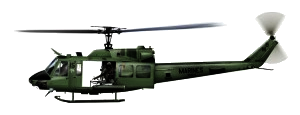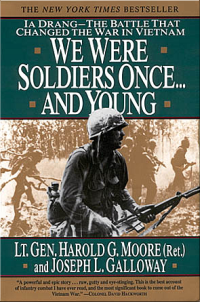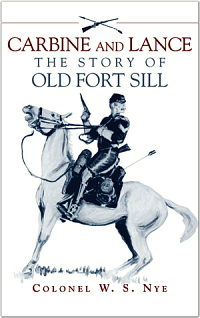Washington Secures the Republic


Following the Battle of Yorktown, the Continental Army encamped at Newburgh, New York. Under-provisioned, unpaid, and in dire straits, the soldier tried various courses of action to obtain the funding promised them by the states and the Continental Congress. Some of their plans were as desperate as their situation and threatened to destroy the republic.

My God, what can this writer have in view by recommending such measures? Can he be a friend to the army? Can he be a friend to this country?

General Meeting of the Officers.
Head-quarters, Wednesday, March 15, 1783.
The officers of the army being convened, agreeably to a general order of the 11th instant, the honorable major-general Gates, president, his excellency the Commander in Chief was pleased to address† the meeting as follows—
BY an anonymous summons an attempt has been made to convene you together; how inconsistent with the rules of propriety, how unmilitary, and how subversive of all order and discipline, let the good sense of the army decide. In the moment of this summons, another anonymous production was sent into circulation, addressed more to the feelings and passions than to the judgment of the army. The author of the piece is entitled to much credit for the goodness of his pen; and I could wish he had as much credit for the rectitude of his heart; for, as men see through different optics, and are induced by the reflecting faculties of the mind to use different means to attain the same end, the author of the address should have had more charity than to mark for suspicion the man who should recommend moderation and longer forbearance; or, in other words, who should not think as he thinks, and act as he advises.
But he had another plan in view, in which candor and liberality of sentiment, regard to justice, and love of country have no part; and he was right to insinuate the darkest suspicion to effect the blackest design. That the address was drawn with great art, and is designed to answer the most insidious purposes; that it is calculated to impress the mind with an idea of premeditated injustice in the sovereign power of the United States, and rouse all the resentments which must unavoidably flow from such a belief; that the secret mover of this scheme, whoever he may be, intended to take advantage of the passions while they were warmed by the recollection of past distresses, without giving time for cool, deliberate thinking, and that composure of mind which is so necessary to give dignity and stability to measures, is rendered too obvious, by the mode of conducting the business, to need other proofs than a reference to the proceedings.
Thus much, gentlemen, I have thought incumbent on me to observe to you, to show upon what principles I opposed the irregular and hasty meeting which was proposed to have been held on Tuesday last, and not because I wanted a disposition to give you every opportunity, consistent with your own honor and the dignity of the army, to make known your grievances. If my conduct, therefore, has not evinced to you that I have been a faithful friend to the army, my declaration of it at this time would be equally unavailing and improper. But, as I was among the first who embarked in the cause of our common country; as I have never left your side one moment, but when called from you on public duty; as I have been the constant companion and witness of your disti esses, and not among the last to feel and acknowledge your merits; as I have ever considered my own military reputation as inseparably connected with that of the army; as my heart has ever expanded with joy when I have heard its praises, and my indignation has arisen when the mouth of detraction has been opened against it: it can scarcely be supposed, at this stage of the war, that I am indifferent to its interests. But how are they to be promoted? The way is plain, says the anonymous addresser. If war continues, remove into the unsettled country; there establish yourselves, and leave an ungrateful country to defend itself. But who are they to defend? Our wives, our children, our farms, and other property which we leave behind us? or, in this state of hostile preparation, are we to take the first two (the latter cannot be removed), to perish in the wilderness, with hunger, cold, and nakedness?
If peace takes place, never sheathe your sword, says he, until you have obtained full and ample justice. This dreadful alternative of either deserting our country in the extremest hour of her distress, or turning our arms against it, which is the apparent object, unless Congress can be compelled into instant compliance, has something so shocking in it that humanity revolts at the idea. My God, what can this writer have in view by recommending such measures? Can he be a friend to the army? Can he be a friend to this country? Rather, is he not an insidious foe; some emissary, perhaps, from New York, plotting the ruin of both, by sowing the seeds of discord and separation between the civil and military powers of the continent? And what a compliment does he pay to our understandings when he recommends measures, in either alternative, impracticable in their nature.
But here, gentlemen, I will drop the curtain, because it would be as imprudent in me to assign my reasons for this opinion as it would be insulting to your conception to suppose you stood in need of them. A moment’s reflection will convince every dispassionate mind of the physical impossibility of carrying either proposal into execution. There might, gentlemen, be an impropriety in my taking notice in this address to you, of an anonymous production; but the manner in which that performance has been introduced to the army, the effect it was intended to have, together with some other circumstances, will amply justify my observations on the tendency of that writing.
With respect to the advice given by the author, to suspect the man who should recommend moderate measures, I spurn it, as every man who regards that liberty and reveres that justice for which we contend undoubtedly must; for, if men are to be precluded from offering their sentiments on a matter which may involve the most serious and alarming consequences that can invite the consideration of mankind reason is of no use to us. The freedom of speech may be taken away, and dumb and silent we may be led like sheep to the slaughter. I cannot in justice to my own belief, and what I have great reason to conceive is the intention of Congress, conclude this address without giving it as my decided opinion that that honorable body entertains exalted sentiments of the services of the army, and, from a full conviction of its merits and sufferings, will do it complete justice. That their endeavors to discover and establish funds for this purpose have been unwearied, and will not cease till they have succeeded, I have not a doubt; but, like all other large bodies, where there is a variety of different interests to reconcile, their determinations are slow. Why, then, should we distrust them; and, in consequence of that distrust, adopt measures which may cast a shade over that glory which has been so justly acquired, and tarnish the reputation of an army which is celebrated through all Europe for its fortitude and patriotism? And for what is this done? To bring the object we seek nearer? No; most certainly in my opinion, it will cast it at a greater distance. For myself (and I take no merit for giving the assurance, being induced to it from principles of gratitude, veracity, and justice, and a grateful sense of the confidence you have ever placed in me), a recollection of the cheerful assistance and prompt obedience I have experienced from you under every vicissitude of fortune, and the sincere affection for an army I have so long had the honor to command, will oblige me to declare in this public and solemn manner, that in the attainment of complete justice for all your toils and dangers, and in the gratification of every wish, so far as may be done consistently with the great duty I owe to my country, and those powers we are bound to respect, you may freely command my services to the utmost extent of my abilities.
While I give you these assurances, and pledge myself in the most unequivocal manner to exert whatever abilities I am possessed of in your favor, let me entreat you, gentlemen, on your part, not to take any measures which, viewed in the calm light of reason, will lessen the dignity and sully the glory you have hitherto maintained. Let me request you to rely on the plighted faith of your country, and place a full confidence in the purity of the intentions of Congress, that, previous to your dissolution as an army, they will cause all your actions to be fairly liquidated, as directed in the resolutions which were published to you two days ago; and that they will adopt the most effectual measures in their power to render ample justice to you for your faithful and meritorious services. And let me conjure you, in the name of our common country, as you value your own sacred honor, as you respect the rights of humanity, and as you regard the military and national character of America, to express your utmost horror and detestation of the man who wishes, under any specious pretences, to overturn the liberties of our country; and who wickedly attempts to open the floodgates of civil discord, and deluge our rising empire in blood.
By thus determining and thus acting you will pursue the plain and direct road to the attainment of your wishes; you will defeat the insidious designs of our enemies, who are compelled to resort from open force to secret artifice; you will give one more distinguished proof of unexampled patriotism and patient virtue rising superior to the pressure of the most complicated sufferings, and you will, by the dignity of your conduct, afford occasion for posterity to say, when speaking of the glorious example you have exhibited to mankind— “Had this day been wanting, the world had never seen the last stage of perfection to which human nature is capable of attaining.”
His Excellency having withdrawn, on motion by General Knox, seconded by General Putnam,
Resolved, That the unanimous thanks of the officers of the army be presented to his Excellency the Commander in Chief, for his excellent address, and the communication he has been pleased to make to them; and that he be assured that the officers reciprocate his affectionate expressions, with the greatest sincerity of which the human heart is capable.
The address from the army to Congress, the report of the committee from the army, and the resolutions of Congress of the 25th January, being read,
On motion by General Putnam, seconded by General Hand,
Voted, That a committee be appointed immediately to draw up some resolutions expressive of the business before us, and to report in half an hour; that this committee consist of one general officer, one field officer and one captain; and that General Knox, Colonel Brooks and Captain Howard, compose the said committee.
The report of the committee being brought in, and fully considered,
Resolved unanimously, That, at the commencement of the present war, the officers of the American army engaged in the service of their country from the purest love and attachment to the rights and liberties of human nature, which motives still exist in the highest degree; and that no circumstances of distress or danger shall induce a conduct that may tend to sully the reputation and glory which they have acquired, at the price of their blood and eight years’ faithful services.
Resolved unanimously, That the army continue to have an unshaken confidence in the justice of Congress and their country, and are fully convinced that the representatives of America will not disband or disperse the army until their accounts are liquidated, the balances accurately ascertained, and adequate funds established for payment, and, in this arrangement, the officers expect that the half-pay, or a commutation of it, should be efficaciously comprehended.
Resolved unanimously, That his Excellency the Commander in Chief be requested to write to his Excellency the President of Congress, earnestly entreating the most speedy decision of that honorable body, upon the subjects of our late address, which was forwarded by a committee of the army, some of whom are waiting upon Congress for the result. In the alternative of peace or war, this event would be highly satisfactory, and would produce immediate tranquillity in the minds of the army, and prevent any further machinations of designing men, to sow discord between the civil and military powers of the United States.
On motion, Resolved unanimously, That the officers of the American army view with abhorrence, and reject with disdain, the infamous propositions contained in a late anonymous address to the officers of the army; and resent, with indignation, the secret attempts of some unknown persons to collect the officers together, in a manner totally subversive of all discipline and good order.
Resolved unanimously, That the thanks of the officers of the army be given to the committee who presented to Congress the late address of the army, for the wisdom and prudence with which they have conducted that business; and that a copy of the proceedings of this day be transmitted by the president to Major General McDougall; and that he be requested to continue bis solicitations at Congress, until the objects of his mission are accomplished.
The meeting was then dissolved.
HORATIO GATES, Major General, President.

†Excerpt from letter to Colonel Timothy Pickering from General David Cobb, aide of General Washington, in reply, from Taunton, November 9th, 1825:—
I was not present at the meeting of the officers in the Temple at Newburgh in March, 1783; but, within a fortnight after, I joined the family at head-quarters, where the circumstances of that meeting and the anonymous letters were the subjects of our frequent conversations. From this source of information, I am confident you are correct in saying that neither Harvie’s letter nor any other writing or observation was communicated by the Commander-in-Chief at the time he delivered his address, excepting a few words, the purport of which you have recited. You will permit me to repeat them as I had them from Secretary Trumbull. When the General took his station in the desk or pulpit, which, you may recollect, was in the Temple, he took out his written address from his coat pocket, and his spectacles, with his other hand, from his waistcoat pocket, and then addressed the officers in the following manner: ‘Gentlemen, you will permit me to put on my spectacles, for I have not only grown gray, but almost blind, in the service of my country.’ This little address, with the mode and manner of delivering it, drew tears from [many] of the officers. As you were present, you may perhaps recollect this circumstance.
—Octavius Pickering, The Life of Timothy Pickering, Vol. I, p. 431 (1867).

[ ☞ INDEX ]


















Recent Comments